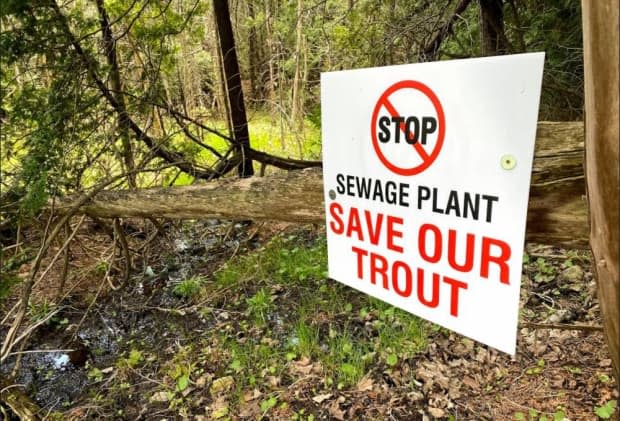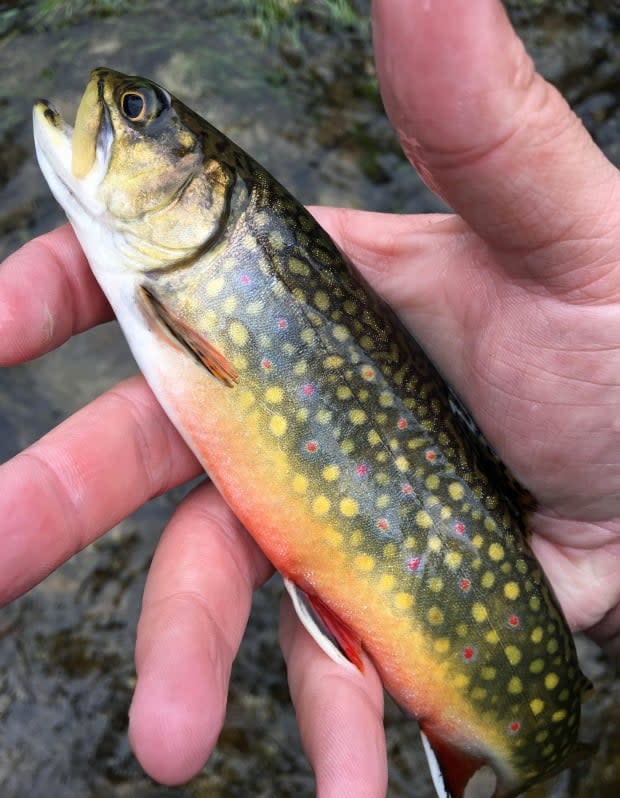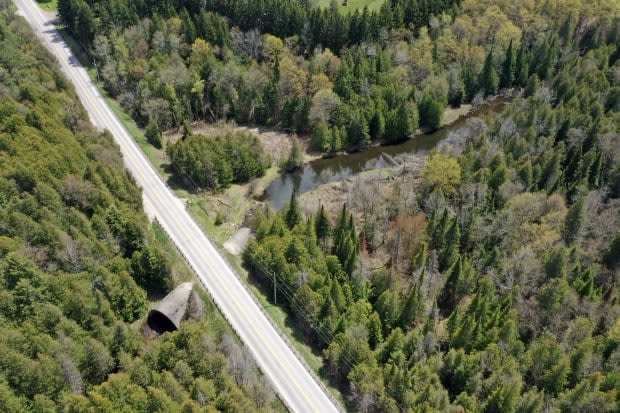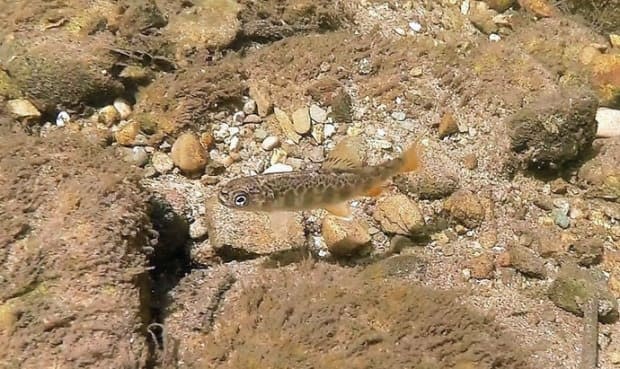Key decision coming soon in fight over 'crown jewel' of southern Ontario trout streams

Conservation groups and residents fighting a planned sewage plant that they say threatens the "crown jewel" of southern Ontario trout streams are about to find out if the federal government will push pause on the project.
An organization called the Coalition for the West Credit River has requested that the Ministry of Environment and Climate Change Canada intervene to complete its own environmental review of the controversial project.
"It is a bit of a Hail Mary," said Dean Latham, a chemical engineer by trade and treasurer of the Izaak Walton Fly Fishing Club. The non-profit angling club, based out of Peel Region, is one of five advocacy groups that have joined the call for a federal assessment.
It's rare that Ottawa steps in to override provincial approvals, especially for municipal projects. Latham says he doesn't believe it has ever happened in the case of a wastewater treatment plant.
"But what we're saying is that this is a unique case," he said.
Jonathan Wilkinson, federal minister of environment and climate change, has until May 26 to issue a decision — exactly 90 days after the coalition submitted its 28-page request. The decision could prove a pivotal development.
The plant would accommodate construction of new subdivisions in the growing but still largely rural Town of Erin, about 80 kilometres northwest of Toronto. Already in the late design stages, plans for the facility were approved by the Ontario Ministry of Environment, Conservation and Parks in August 2019.
The hitch for opponents is that it could eventually dump up to 7.2 million litres of treated wastewater every day into the West Credit River, a small coldwater stream home to one of the few remaining wild Brook trout populations in this part of the province.

Historically, Brook trout would have filled the many spring-fed streams that once wound through the Niagara Escarpment and its watersheds. Some still flow today, though few if any support a population of wild trout as prolific and healthy as the West Credit.
"It is a special place," said John Monczka, secretary of the Greg Clark Chapter of Trout Unlimited Canada. "The habitat is as good as it gets in southern Ontario."

Trout Unlimited is a non-profit that works to conserve and rehabilitate fish habitats across North America. The Greg Clark Chapter, eponymously named for the late Toronto Star journalist and fisherman, focuses on the Upper Credit River and its tributaries. That includes the West Credit.
"And it's not just the Brook trout around here, it's the whole coldwater ecosystem that Brook trout are a part of," said Monczka, who lives in Toronto but spoke to CBC News during a break from fishing near the hamlet of Belfountain, just to the east of Erin.
Brook trout are sensitive fish. They need cool, clean water and lots of oxygen to thrive. Water temperatures above 19 C stress them out, while temperatures in the 23 to 24 C range can be fatal.
Urban, industrial and agricultural development have contributed to a drastic decline in the number of Ontario rivers and streams that can sustain wild Brook trout, or 'brookies,' as many anglers affectionately call them.
Those opposed to the wastewater treatment plant fear the effluent will, among other impacts, warm the West Credit beyond what Brook trout can tolerate.
That effect will likely be exacerbated by the climate crisis, said Latham. He argued that the environmental study done for the Town of Erin failed to adequately address how climate change could compound the river warming caused by the treatment plant.
"Not accounting for climate change is a huge miss," said Latham. "Think about it: in 2021, we are going to build a 30 to 50 year piece of infrastructure that doesn't adequately account for climate change? … Does that make sense in this day and age?"
The coalition and many frustrated local residents in the area — especially those who live downstream of Erin — said the community consultation process was deeply flawed. An online petition in support of a federal review garnered more than 21,000 signatures, while some 670 people wrote letters to Wilkinson asking for a pause on the project.

Conservative MP Kyle Seeback, who represents the riding of Dufferin–Caledon where the West Credit River is located, also presented a 500-signature petition in the House of Commons in support of federal action.
The Town of Erin finds itself in a difficult position. It expects to see substantial growth in coming decades, with the population of two main centres within the town to climb from roughly 4,500 now to as many as 10,000 by 2040.
And the municipality currently relies on aging septic tanks, which themselves pose environmental risks.
In a November 2020 op-ed published in a local news outlet, Erin Mayor Allan Alls said the sewage plant is key to the town's economic future and its ability to offer housing opportunities to young families.
The town will need more tax revenue to "help us build our roads and bridges, and to replace or maintain the infrastructure we rely on every single day," Alls said.

Nick Colucci, director of infrastructure services for the Town of Erin, said the local government stands by the planning process for the wastewater treatment plant. Multiple alternative scenarios were studied and ultimately rejected by the engineering consulting firm that did the review.
The Credit Valley Conservation Authority was also closely involved throughout the planning process, which started as early as 2016, he said.
"I think I would say that the design was very thorough and looked at many different things," said Colucci, adding that "there was a very detailed communication plan throughout the entire process."
Meanwhile, three earlier attempts by local residents to have certain aspects of the environmental study redone were rejected by Jeff Yurek, Ontario's minister of the environment, conservation and parks.
A spokesperson for Yurek's office said in an email that the minister was "satisfied that the concerns raised had been adequately addressed in the work completed by the town as part of the environmental assessment process or would be addressed in future work that was required to be carried out."
The statement went on to say that the study was "sufficient to demonstrate the need for the project and provide a thorough understanding of the potential impacts of the proposed plant as well as required mitigation measures."
Construction is slated to begin later this year with completion expected some time in 2023, Colucci said. If the federal government decides to do another environment assessment, the town will provide any assistance that is needed, he added.
As for the Coalition for the West Credit River, Latham said the group will keep advocating for wild Brook trout and the river no matter what Ottawa ultimately chooses to do.
"It is the crown jewel of Brook trout habitat in southern Ontario. If we can't protect that, what can we protect?"

 Yahoo Movies
Yahoo Movies 